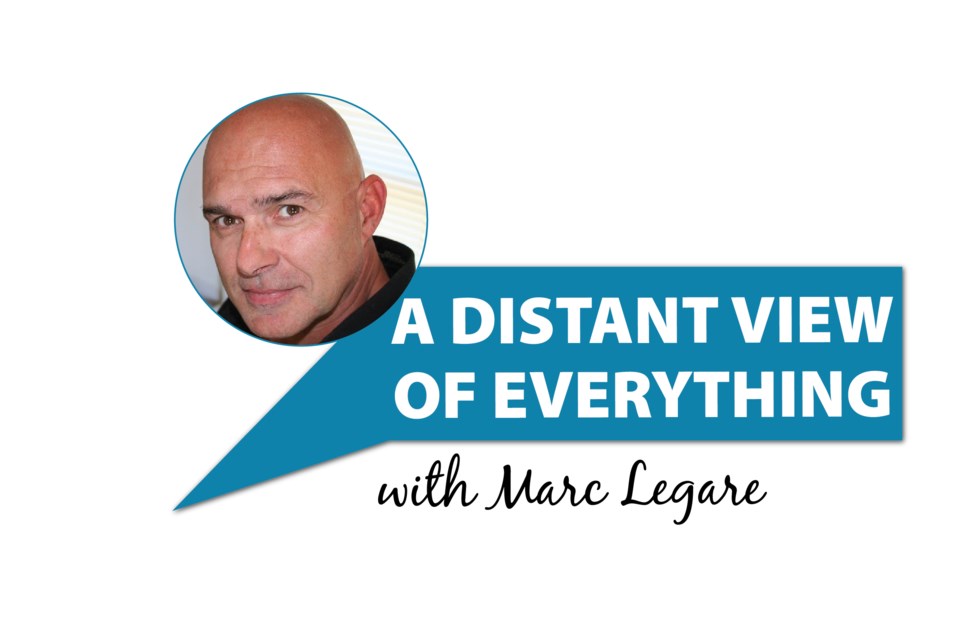Marc Legare is a philosopher and motorcycle adventurist.
He has travelled extensively, worked and lived in Australia, US, and across Canada.
He has a varied working career including: Firefighter, Lawyer, Navy, Motorcycle Importer, plus others.
He chose to return to southern Saskatchewan because of his family's deep roots here.
We are, or were, a wealthy country. Our debt, both public and personal, is so large we will not be for long. We have forgotten how and why we became wealthy in the first place. We achieved wealth due to our values and fundamental principles. Disgustingly, we have turned our back on those tenets and have bitten the hand that fed us.
Free-enterprise with extremely limited government involvement was a cornerstone belief we once had. That long proven system was fundamental in making us one of the wealthiest countries in the world. However, we turned away from that ideology. Now, every time there is economic hardship, we do not let the free market healthily correct itself. Instead, we band-aid fix it by borrowing more and scream for bailouts to our government with fat, greedy little hands extended.
Free-enterprise is the "big daddy" reason we became rich. There are other essential but less considered values we had that brought us to abundance. One such core moral was, "pay your bills." It was not so long ago that our society had a healthy level of resentment toward those who went bankrupt or did not pay what they owed.
That is no longer true. David Dinkins summed it up; "Today, certain people file for bankruptcy, businesses and individuals, and it no longer has the stigma it once had. Now it's almost considered wise, a way to regroup and come back again."
The legal ramifications of signing a document promising to repay a debt or honor a business deal was well known. There was also an unspoken moral obligation to do so. Now, many sign repayment documents without believing in a moral responsibility to live up to that agreement.
It is all too common to hear the pathetic words, "Oh well, if I can't make the payments, I will just bring the keys back to the bank." Or, "No big deal, the bank has lots of money anyway." Those who spew such flippant words do so without any consideration that we all pay for bad debts one way or another. Worse still, it seems they are almost proud of their cavalier disregard for their responsibilities; almost as if defaulting is amusing.
The value of moral obligations regarding financial dealings cannot be overstated. A high degree of personal accountability between two parties doing business is essential. It makes business run smoothly, produces confidence in future transactions, and encourages future investment. Our dismissing morality in business dealings has damaged our society beyond description.
Another long-forgotten mindset we had was we believed in saving. Instead of immediately incurring debt, we saved up to make purchases or did so to keep a healthy nest-egg for emergencies. That has evaporated. Many are two or three paychecks away from being insolvent. We currently have a lot of material possessions, few of them we can actually afford. We ignored our emergency nest-egg ideology in order to get more shiny new things immediately. The change from being savers to borrowers gives the appearance of wealth, but our actual wealth is now an illusion.
By abandoning many simple and honorable basics, we have rotted away the very foundation of our material wellbeing. Because of that, we all can feel the economic axe hovering just above our selfish heads.
Our true colors will be shown when it all comes crashing down. When it does, millions will be pointing their finger at everyone else. Governments, bankers, and the like will be touted as being the culprits and to some degree they are. Nonetheless, we are just as guilty. We walked away from tried-and-true moral economic principles our parents and grandparents valued.
Too bad we forgot the old adage of; "Don't bite the hand that feeds you." One day we might be hungry again.
The views and opinions expressed in this article are those of the author, and do not necessarily reflect the position of this publication.




